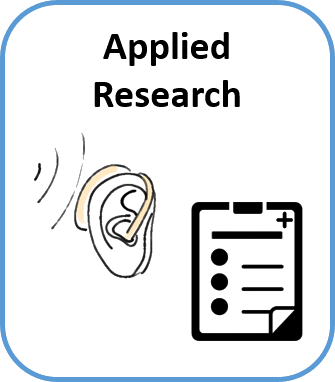Human Cognition and Communication
Speech perception
The human ability to understand speech is underpinned by a hierarchical auditory system whose successive stages process increasingly abstract acoustic and linguistic properties of the input. Our research aims to better understand the neural mechanisms allowing for the transformation of a speech sound into its abstract meaning. We do so by measuring neural signals as participants listen to continuous natural speech from, for example, audio-books, podcasts, or cartoons (e.g., Di Liberto et al., 2015). In doing so, we derive objective neural indices of speech processing that can then be used to investigate how human communication develops across the life-span by studying cohorts such as infants and older adults, and by assessing language processing in adults that are learning a second-language (Di Liberto et al., 2021).
Music perception
Humans engagement in music rests on underlying elements such as the listeners’ cultural background and interest in music. These factors modulate how listeners experience and enjoy the music. The ability to measure the neural processes responsible at the foundation of music perception would provide us with a direct window into fundamental cognitive functions, such as memory and prediction, while sheding light on the perception of music, which is poorly understood although music is pervasive in our society (Di Liberto et al., 2020).
Social interaction
Check out our progress with the Collective Minds lab, which is a new initiative at Trinity College Dublin and the Institute of Neuroscience aiming to create a space for research on social interaction. Website
Explore the other research themes



